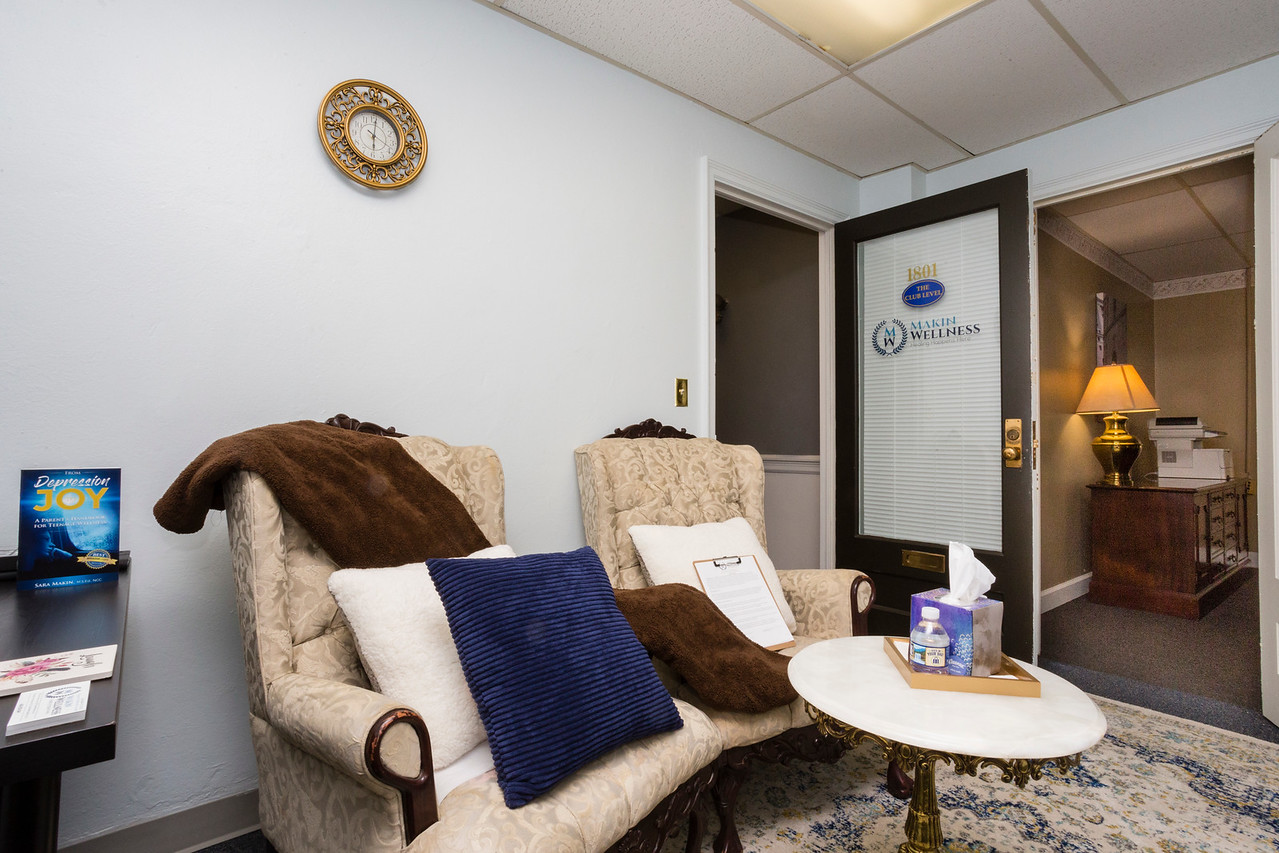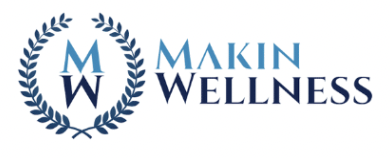Makin Wellness


Overview
Makin Wellness is a mental health treatment center for people seeking treatment near Allegheny County. As part of their treatment modalities for recovery, Makin Wellness provides trauma-related counseling during treatment. Makin Wellness is located in Pittsburgh, Pennsylvania, accepting cash or self-payment for treatment.
Makin Wellness at a Glance
Payment Options
- Cash or self-payment
- Medicare
- Private health insurance
- Federal military insurance (e.g., TRICARE)
- Sliding fee scale (fee is based on income and other factors)
Assessments
- Comprehensive mental health assessment
- Comprehensive substance use assessment
Age Groups
- Adults
- Seniors
- Young adults
- Seniors or older adults
- Children/adolescents
Ancillary Services
- Court-ordered outpatient treatment
- Family psychoeducation
Treatment At Makin Wellness

Conditions Treated
Mental health treatment:
Mental health treatment involves various therapies and support services provided by licensed professionals to address mental health issues. These interventions, which can include therapy, medication, and holistic approaches, aim to enhance well-being, improve coping, and empower individuals to lead fulfilling lives. It's personalized, comprehensive care for mental health challenges.
Substance use treatment:
Substance use rehabilitation is a comprehensive treatment approach designed to assist individuals struggling with addiction to drugs or alcohol. This form of rehabilitation addresses both the physical dependency, often starting with detoxification, and the psychological triggers, using various therapeutic methods. The objective is to empower individuals to achieve and maintain sobriety, while equipping them with the tools and coping strategies needed to reintegrate into society and lead a substance-free life.
Co-occurring Disorders:
Dual-diagnosis rehabs are usually the appropriate solution to treat co-occurring mental health and substance abuse disorders. These facilities typically employ medical and behavioral experts who use a range of interventions, together with the right healing environment, for you to achieve and sustain long-term recovery. Treatment usually includes evidence-based therapies (like cognitive behavioral therapy), recovery support meetings, 12-step facilitation, psychoeducation, skills training, and group therapy.
Alcoholism:
Alcohol addiction is a condition where a person's brain gets used to having alcohol, making it hard for them to control their drinking. This can lead to feeling down, acting without thinking, wanting alcohol strongly, and feeling sick if they don't drink. To help with this, treatment programs are available. These usually include a guided process to safely stop drinking, talking with professionals to work through problems, and joining support groups with others facing similar issues. While these treatments can't fully cure the addiction, they provide tools and support to help individuals live a better life and keep their drinking under control.

Levels Of Care
Outpatient:
Outpatient treatment in a rehab center offers flexible therapy sessions, typically ranging from 1-3 hours per week, allowing individuals to continue daily activities while receiving care. In contrast, intensive outpatient programs demand a more rigorous commitment, often involving 9-15 hours weekly, providing a more immersive therapeutic environment without the need for inpatient stays.

Treatment Modalities
Trauma-related counseling:
Trauma therapy addresses the underlying emotional and psychological wounds that may contribute to an individual's substance abuse. Through a combination of psychotherapy and coping strategies, individuals are aided in processing past traumatic experiences, understanding the impact of trauma on their current behavior, and developing healthier coping mechanisms. This holistic approach fosters resilience, aids in the resolution of trauma, and is fundamental in supporting individuals on their path toward sustained recovery from addiction.
Eating Disorder Treatment:
Eating disorders encompass conditions like anorexia, bulimia, binge eating, and unhealthy eating habits. Some mental health experts view these disorders as akin to food addiction, where food is used compulsively, much like substances in drug or alcohol addiction. Consequently, specific substance abuse treatment programs may include support for eating disorders. Furthermore, eating disorders can co-occur or be diagnosed alongside drug and alcohol addiction.
Individual psychotherapy:
Individual therapy, often referred to as psychotherapy or counseling, is a one-on-one therapeutic interaction between a trained therapist and a client. It provides a confidential space for individuals to explore their feelings, beliefs, and behaviors, working through challenging memories, experiences, or emotions. The therapist facilitates self-awareness, promotes personal growth and insight, and offers coping strategies to manage specific issues like stress, anxiety, depression, and other life challenges. The ultimate goal is to improve the individual's mental well-being and enhance their overall quality of life.
Marital/couples counseling:
Whether a marriage or other committed relationship, an intimate partnership is one of the most important aspects of a person's life. Drug and alcohol addiction affects both members of a couple in deep and meaningful ways, as does rehab and recovery. Couples therapy and other couples-focused treatment programs are significant parts of exploring triggers of addiction, as well as learning how to build healthy patterns to support ongoing sobriety.
Couples/family therapy:
Couples Therapy is a specialized form of counseling designed to help couples navigate and improve their relationships. In this therapeutic process, a trained therapist or counselor works with couples to address communication issues, conflicts, and emotional challenges within their partnership. Couples Therapy provides a safe and supportive environment for couples to explore their feelings, understand each other's perspectives, and develop effective strategies for building stronger, more fulfilling connections. It can be instrumental in fostering healthier relationships, enhancing intimacy, and promoting long-term relationship satisfaction.
Group counseling:
Group therapy entails therapeutic sessions conducted in a collective setting rather than one-on-one. It encompasses various modalities, from support groups and experiential therapy to psycho-education and beyond. The approach focuses on treatment and emphasizes the dynamic interactions and shared experiences among group members.
Cognitive behavioral therapy:
Cognitive Behavioral Therapy (CBT) is a form of psychotherapy that emphasizes the critical role of thinking in how we feel and what we do. It aims to identify and challenge distorted or negative thought patterns and behaviors, teaching individuals to replace them with more constructive and rational beliefs. CBT is evidence-based and has been shown to be effective in treating a variety of psychological disorders, including depression, anxiety, and phobias, among others.
Dialectical behavior therapy:
Dialectical Behavior Therapy (DBT) for addiction treatment is a comprehensive cognitive-behavioral approach initially developed to treat individuals with borderline personality disorder. Adapted for addiction, DBT emphasizes the development of four core skills: mindfulness, emotion regulation, distress tolerance, and interpersonal effectiveness. Through individual and group sessions, patients learn to understand their triggers, manage negative emotions, cope with cravings, and improve relationships, all of which contribute to long-term recovery and reduced substance use.
Integrated Mental and Substance Use Disorder treatment:
Integrated Mental and Substance Use Disorder treatment is a comprehensive approach to treating individuals with both mental health and substance use disorders. It aims to address both conditions simultaneously through a coordinated and integrated approach. The goal is to improve overall well-being and reduce the risk of relapse.
Activity therapy:
Activity Therapy encompasses a range of structured activities aimed at promoting physical, emotional, and mental healing and well-being among individuals recovering from substance abuse, physical injuries, or mental health issues. Utilizing creative expression, outdoor activities, and skill-building exercises, this therapeutic approach helps individuals rediscover their interests, develop coping skills, enhance self-esteem, and improve interpersonal relationships. By engaging in meaningful activities in a supportive environment, individuals are empowered to overcome challenges and progress towards a holistic and lasting recovery.
Telemedicine/telehealth therapy:
Telehealth provides a secure and handy way to access behavioral health care from your home. It eliminates the need for travel, time off work, or organizing childcare. A range of services, including individual therapy, group sessions, and monitoring for anxiety and depression, are available remotely. Rest assured, telehealth video sessions are not recorded, ensuring your information remains as confidential as in-person consultations.
Cognitive remediation therapy:
Cognitive Remediation Therapy (CRT) is a therapeutic approach designed to improve cognitive abilities such as attention, memory, and problem-solving skills. Often used in individuals with brain injuries or neuropsychiatric disorders, CRT employs various exercises and strategies to enhance cognitive functioning and improve daily living skills and overall quality of life. The goal is to help patients develop better cognitive efficiency and compensate for specific deficits, allowing for increased independence and improved socio-occupational functioning.
Eye Movement Desensitization and Reprocessing therapy:
Eye Movement Desensitization and Reprocessing (EMDR) Therapy is a psychotherapeutic approach designed primarily to treat trauma and post-traumatic stress disorder (PTSD). It involves the patient recalling traumatic events while undergoing bilateral sensory input, typically guided eye movements. EMDR aims to facilitate processing distressing memories, reducing their long-term impact, and helping individuals develop more adaptive coping mechanisms.
Ancillary Services
Languages
- Spanish
- Other languages (excluding Spanish)
- Arabic
Special Programs
- Persons with eating disorders
- Clients who have experienced trauma
- Clients with co-occurring mental and substance use disorders
- Criminal justice (other than DUI/DWI)/Forensic clients
- Clients who have experienced intimate partner violence, domestic violence
Contact Information
DISCLAIMER: The facility name, logo and brand are the property and registered trademarks of Makin Wellness, and are being used for identification and informational purposes only. Use of these names, logos and brands shall not imply endorsement. BetterAddictionCare.com is not affiliated with or sponsored by Makin Wellness.

